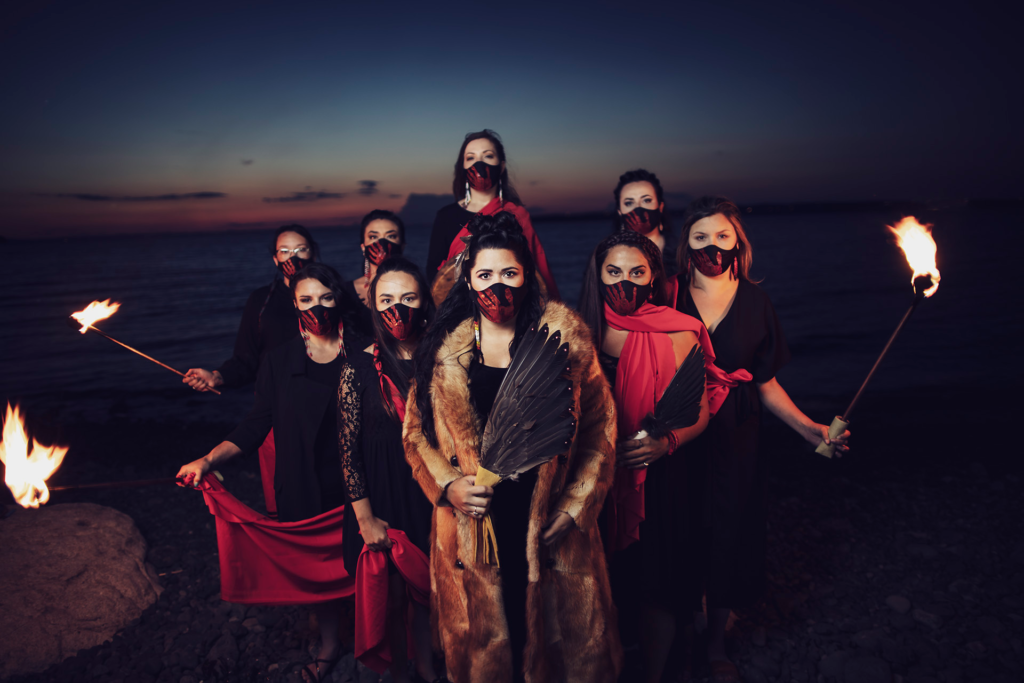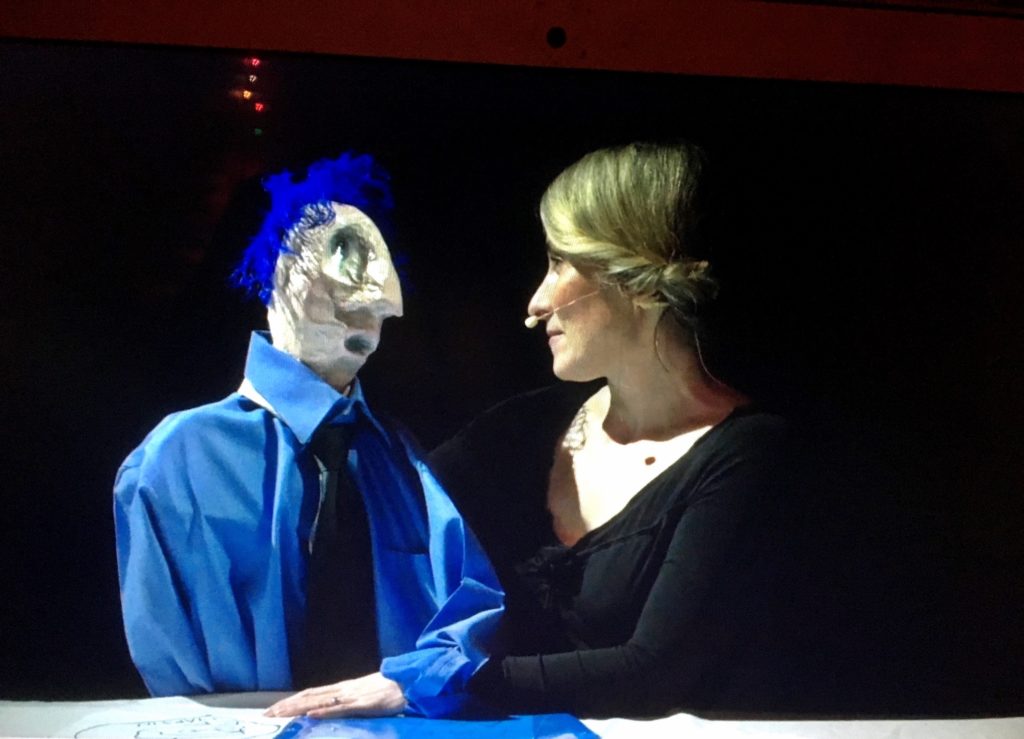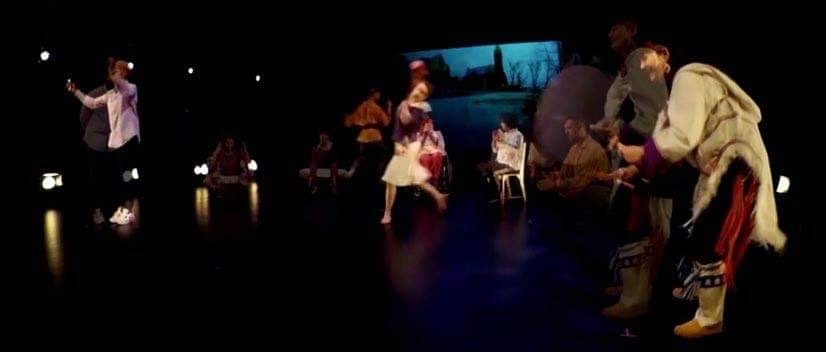
(October 5, 2021) In the spring of 2020, when the pandemic arrived in Canada, NL artists joined their colleagues across the country as among the first to experience a severe disruption to their livelihoods and ways of working.
The arts sector is a major economic driver—second only to the transportation sector for its decline in earnings in 2020, according to The Charity Report’s Arts Charities in Canada published in May 2021. Thirty percent of revenue to artists comes from what the Canada Revenue Agency classifies as the sale of “goods and services”. When those sales are squeezed by covid restrictions, the financial consequences can be enormous.
To gauge how the badly hurt the arts sector was by covid, last spring The Charity Report reached out to a group of Newfoundland and Labrador artists, part of a broad-based community around which the economy of NL is partially built. A feature story, The Work of Art was published on April 22, 2020, and detailed how four Newfoundland and Labrador artists—two solo practitioners, an opera company general manager and a theatre producer—were dealing with the sudden cancellation of tours and local performances. For those whose practice was dependent on in-person gatherings, even the making of art became temporarily impossible.
In the last few weeks, we’ve checked back in with these artists to see how things are going.
Back in the spring of 2020, Patrick Foran, producer at Artistic Fraud theatre company in St. John’s, already had equipment on the west coast when he had to cancel a B.C. tour to present their original play Between Breaths. Louise Moyes’ production Long’s Hill, based on the history of her own St. John’s neighbourhood, was also cancelled. Cheryl Hickman, founder, and general manager of Opera on the Avalon (OOTA) saw her upcoming season put on hold. And award-winning puppeteer, Tara Manuel, dealt with the uncertainty around her upcoming project on Muskrat Falls.
But, partly by using the natural world as a backdrop, and by using the latest technology to reach audiences, artists adapted by bringing innovative ideas to their art and a way to situate themselves and audiences in those ideas.
With The Rock Performs, OOTA commissioned and conducted a series of performances it recorded and filmed at evocative locations across the province. The performances were made available to the public through streaming online and now reside on their website. In one of ten episodes, Eastern Owl perform their song “Henrietta,” on Topsail Beach, in full view of Conception Bay and its three largest islands. “Henrietta” is inspired by the story of Henrietta Millek, an Inuk woman from Nain NL, who has been actively missing from St. John’s since 1982. It was filmed by Roger Maunder and photographed by David Howells.
Hickman says it requires a lot of investment to produce digital content that rivals the best of what is on offer from around the world. ArtsNL, formerly the Newfoundland and Labrador Arts Council, has provided funding for another season of The Rock Performs that will be accessible in high definition through a subscription to OOTA-TV.
Artistic Fraud “made the pivot” to different ways of presenting original work, says Patrick Foran, a vital move given that traditional theatre spaces were often closed, and even when they were open, they could only be at half-capacity or less because of safety restrictions.
The company commissioned new work that resulted in a “part radio play and part treasure hunt,” made up of seven monologues communicated through seven FM radio transmitters placed at specific sites around St. John’s. Audience members bought tickets and were given a map that helped them drive (in their automobile bubbles of safety) within range of each transmitter. There, they tuned their radios to specific frequencies and listen to short performances before driving on to the next secret location.
The Other Side of This premiered in October 2020.
The theatre company also experimented with GPS technology to engage with audience members through smartphones, enabling safe outdoor excursions.
The flexibility of funding and support from all public funders including the Canada Council for the Arts (CCA), ArtsNL and the City of St. John’s was appreciated by all four artists. They said funders understood the need for patience when waiting for financial reporting, honoured their commitments even when shows were cancelled or postponed, and made a priority of keeping artists financially solvent wherever possible. Allowing the repurposing of grants was one way of doing this.
Tara Manuel was able to use a CCA grant for digital innovation to move Muskrat Dreams: A Love Story, a show about a provincial political scandal, populated by a diverse cast of puppets, to an online format.

In spring 2020, Tara Manuel had been shocked to learn the details of the Muskrat Falls hydroelectric dam project through the public inquiry and report led by the Honourable Justice Richard LeBlanc. “The project has put the province in a very precarious place and flooded Indigenous land,” Manuel says.
“The long-term effects on the province are likely to be onerous. Justice LeBlanc himself wrote ‘ratepayers on the Island of Newfoundland, who are responsible for repaying the cost of the Project through electricity rates, face the prospect of greatly increased power bills when the Project comes on-line’.”
The pandemic has had the effect of making her more political in her work, Manuel says, and she finds puppetry helps audiences engage with “difficult conversations.”
Moyes, like the other artists, has experienced major digital shifts in her artistic practice. And while her docudance—a dance based on documentary style interviews—Long’s Hill had been cancelled, she found a bigger audience for it when it was filmed in a black box-style studio and streamed online.)

But the effects of the pandemic are far from over. The live performance of Moyes new show, Our Solo, had just been cancelled because of the reintroduction of covid restrictions based on Newfoundland and Labrador’s failure to reach its required 80% vaccination threshold. Moyes was disappointed but accepted the situation with equanimity.
“Everything is impermanent,” she said.
Hickman, like the other artists interviewed, believes the pandemic taught the importance of putting people first.
“We have to take ownership of how we run our companies,” she says. Remembering her own experience as a young performer, she says abuse used to be rampant in her field. Now, she feels responsibility to be part of a more positive and constructive working experience for all.
“A happy company makes for a happy life,” she says, noting OOTA’s shift to a four-day work week and other provisions for wellbeing.
While Foran said he is optimistic about the fate of his own theatre company, he had just been on a conference call with his colleagues from around the country and some of them were despondent. The ever-shifting provincial covid rules and protocols was causing burnout, especially for his Alberta colleagues, he observed. “I’m worried we’re going to lose people from this industry forever,” he said.
Moyes has kept busy during the pandemic, as an artist, as a caregiver to members of her family, and as a support worker to people with disabilities. She said the pandemic gave her a renewed appreciation for the barriers that people with disabilities have faced all along.
“People in that community say to me, ‘You now understand better the isolation we live with.’” That lesson has improved her ability to engage with different types of audience members and find out how they want to experience performances, she says.
“I am always looking for unconventional ways to engage with audiences,” Moyes says. “We are hard-wired for connection.”
The pandemic goes on, but it is certain that the arts will outlast it.
Related
The Work of Art April 22, 2020
Reg Winsor, NL arts chief : ‘Art is vital to the economy’ April 22, 2020